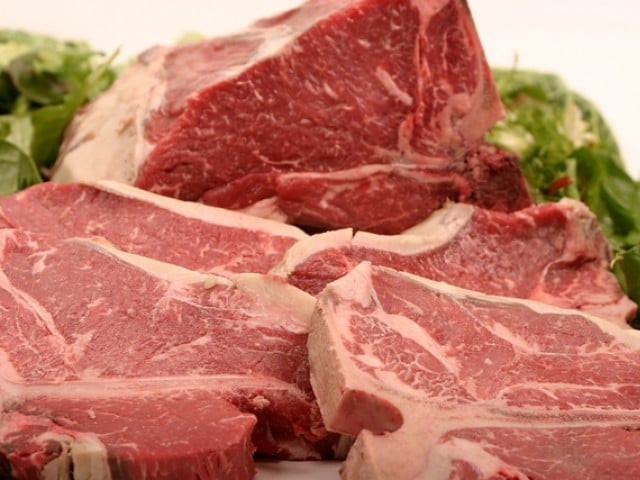Eating less red meat can save planet earth: latest research
Scientists stress need to reduce meat consumption to save the planet from impact of climate change

Scientists warn that reduction in meat consumption is required to save the planet from impact of climate change. PHOTO: FILE
According to the latest research, carried out over the past few years, has revealed that there is a substantial impact on our planet through a decrease in human consumption of red meat, especially beef and mutton, The Guardian reported.
Unsustainable agricultural practices and the ongoing species extinction crisis has led to livestock and humans making up approximately 96% of all mammals on earth. But despite utilising vast majority of farmland, red meat and dairy products account for just 18% of all food calories and around a third of protein.
Massive deforestation is making way for livestock production, that leads to an increase in methane emissions from cows and fertiliser use that together with our industrial age inventions the world’s cars, trucks and aeroplanes are contributing to rising global greenhouse gas emissions. Meat farming practices risk mass extinctions for wildlife, as well as contribute to the pollution of streams, rivers and, finally, the ocean.
Red meat can increase risk of diseases
In October, scientists warned that reduction in meat consumption is required if the world is to save itself from serious impact of climate change, with beef consumption in western countries needing to drop by 90% and to be replaced by five times more beans and pulses.
Consumption of milk and eggs are also required to sharply decline, as the world’s population explodes by an extra 2 billion people by 2050. Researchers point out that there is a need for a global shift to a “flexitarian” diet to help prevent the global temperature increase from reaching a 2.C limit agreed by governments.
A host of measures are suggested in order to accomplish this, ranging from a tax on red meat to feeding seaweed to cows to reduce methane escaping in their digestive tract. Some advocates are even promoting consumption of insects as a substitute for steaks and mutton chops.
A more rational approach could be to advance towards vegetarianism via lab-grown meats or the shift towards increasingly popular vegan substitutes such as the 'Impossible burger'. Whatever way you choose, there’s hope that coming years will help us see a drastic shift in human consumption patterns.
This article originally appeared in The Guardian.


















COMMENTS
Comments are moderated and generally will be posted if they are on-topic and not abusive.
For more information, please see our Comments FAQ